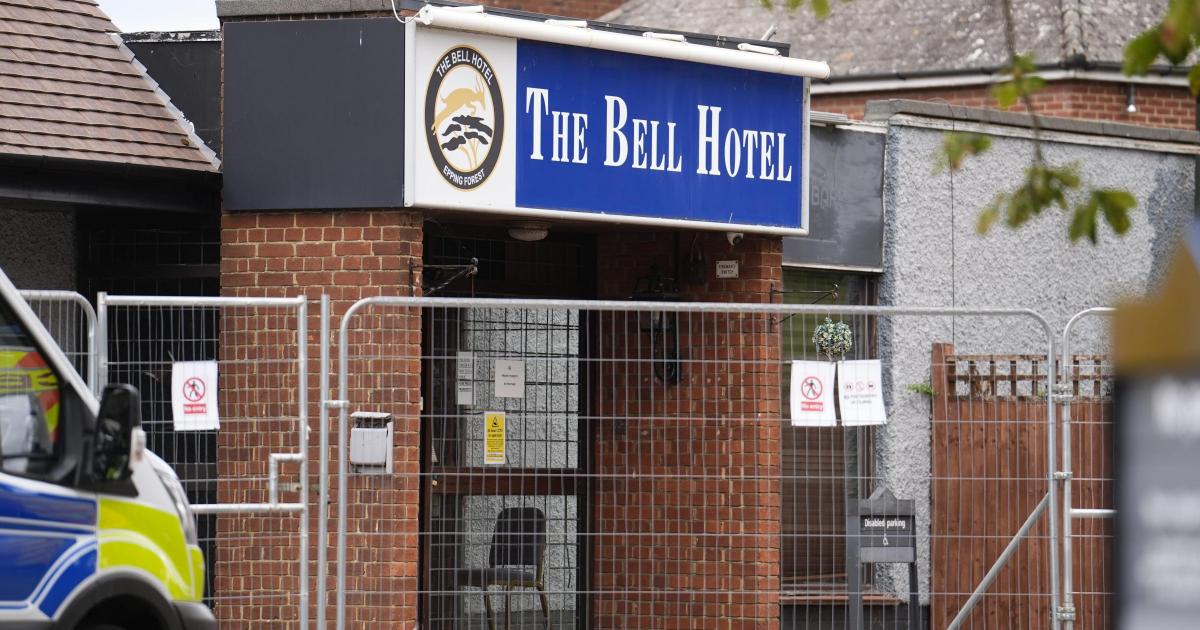What started as a legal challenge over one hotel in Essex has now thrown the entire asylum policy of Sir Keir Starmer’s government into turmoil.
A judge has ordered the closure of The Bell Hotel in Epping within 24 days, after ruling that the building was unlawfully converted into housing for asylum seekers.
This move, cheered on by local residents and campaigners, has raised fears that similar lawsuits could follow across the country.
For Labour, it’s a headache that comes just as anger over migrant hotels was already heating up.
Ministers Left Scrambling After Failed Bid
The Home Office made a last-ditch attempt to block the action, but it was thrown out in court.
Government lawyers even warned that closing the hotel could encourage more unrest, pointing to protests that had turned violent in recent weeks.
Despite this, the ruling stood — and it’s now sending shockwaves far beyond Essex.
Political Rivals Seize the Moment
Critics wasted no time piling pressure on Labour.
Reform UK’s Nigel Farage said the ruling should “inspire” other communities to take similar steps.
Tory leader Kemi Badenoch called it “a victory for the mums and dads in Epping” who wanted safety for their families.
She accused Labour of having “no solution” as small-boat arrivals keep climbing.
Across the border in Hertfordshire, Conservative council leader Corina Gander said the judgment gave them a “massive boost” to consider their own legal action.
And with Reform UK holding sway in 12 local councils, many others could soon follow Epping’s lead.
The Spark That Ignited the Backlash
The case against the hotel gained momentum after the arrest of Ethiopian migrant Hadush Kebatu, accused of sexual offences just days after arriving in Britain.
Protests erupted, some turning violent, as residents clashed with anti-racism groups outside the hotel.
Although many demonstrations later calmed, local campaigners — including a group of women calling themselves the “Pink Ladies” — kept marching.
Another asylum seeker at the hotel, Syrian national Mohammed Sharwarq, was also charged with multiple offences, further inflaming tensions.
Labour’s Immigration Struggles Deepen
The ruling comes at a time when Labour is already facing sharp criticism over its immigration stance.
Starmer scrapped the Conservative government’s Rwanda scheme, which planned to send illegal migrants to East Africa, leaving many accusing Labour of having no workable plan.
Meanwhile, the Prime Minister’s promise to “smash the gangs” looks shaky, with more than 51,000 small-boat arrivals recorded since the election.
And with around 32,000 migrants spread across 210 hotels nationwide, pressure on local communities keeps growing.
The Judge’s Reasoning
In his judgment, Mr Justice Eyre ruled that The Bell Hotel’s owners had sidestepped planning rules by converting the property into a migrant hostel without proper approval.
While he acknowledged they acted in “good faith,” he concluded the change of use was deliberate and unlawful.
The Home Office argued that shutting the hotel would breach asylum seekers’ human rights — but the court disagreed.
A hearing on whether the closure will be made permanent is still to come.
A Boost for Local Campaigners
Epping Forest Council leader Chris Whitbread welcomed the ruling, saying it was a win not just for his community, but for councils nationwide.
Protest leader Sarah White also celebrated the “fantastic news,” promising to support similar protests in towns across the country.
Her words reflect a growing sense that this case is about more than one hotel — it could set a precedent for how local communities challenge asylum housing in the future.
What Happens Next?
For now, the spotlight is firmly on Labour.
The party has promised to phase out asylum hotels by the end of the current parliament, but this ruling accelerates the pressure to act.
Councils are already lining up to test the same legal route, and with public discontent rising, the government faces a tough balancing act between housing migrants and calming communities.
The next major step will be the permanent injunction hearing.
If the closure is upheld, it could unleash a wave of copycat challenges nationwide — potentially reshaping Britain’s asylum accommodation system.



